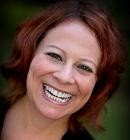People all over the world sing in the new year each midnight with this song, but how many know what it means or where it comes from, or give it any thought at all?
It's attributed to the Scottish poet Robert Burns, but it appears he just added a couple of verses to what was already a song sung in Scotland prior 1700. However, it is Robert Burn's version that is the Auld Lang Syne people sing today. It literally means "old long ago"... you know, way back in the good ole days!
Have you noticed when everyone stands around in a circle holding hands on New Year's Eve, everyone belts out the first line or two and then it becomes a sort of mumbled song and who knows WHAT they're singing! And it goes on like that to the end and suddenly everyone knows the words again and belts them out clearly. Don't be embarrassed if you are one of these people who just sings the beginning and the end... I'm going to give you the words so you have all year to practice it, so next New Year's Eve you can show off to everyone how YOU know all the words! Here is the version as it is popularly sung now in modern times:
Auld Lang Syne
Should old acquaintance be forgot,
And never brought to mind?
Should auld acquaintance be forgot,
And auld lang syne?
Chorus
For auld lang syne, my dear
For auld Lang syne,
We'll tak a cup o kindness yet,
For auld lang syne!
Verse Two
And there's a hand my trusty fiere,
And gie's a hand o thine
And we'll tak a right guid-willie waught,
For auld lang sine
Chorus (repeat)
For auld lang syne, my dear
For auld Lang syne,
We'll tak a cup o kindness yet,
For auld lang syne!
Apparently, the translation of a guid-willie waught is a good drink/toast.
So there you go! Don't say you don't learn anything on my blog site!
Happy new Year!
Terri Levine
http://www.comprehensivecoachingu.com
http://www.terrilevine.com
http://www.coachinstitute.com
Wednesday, January 03, 2007
Subscribe to:
Post Comments (Atom)

No comments:
Post a Comment